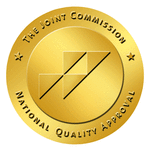
Social anxiety disorder, also known as social phobia, involves intense fear of certain social situations—especially situations that are unfamiliar or in which you feel you’ll be watched or evaluated by others.
These social situations may be so frightening that you get anxious just thinking about them or go to great lengths to avoid them.
Underlying social anxiety disorder or social phobia is the fear of being scrutinized, judged, or embarrassed in public. You may be afraid that people will think badly of you or that you won’t measure up in comparison to others. And even though you probably realize that your fears of being judged are at least somewhat irrational and overblown, you still can’t help feeling anxious.
While it may seem like there’s nothing you can do about the symptoms of social anxiety disorder or social phobia, in reality, there are many things that can help. It starts with understanding the problem.
Common social phobia / social anxiety disorder triggersAlthough it may feel like you’re the only one with this problem, social anxiety or social phobia is actually quite common. Many people struggle with these fears. But the situations that trigger the symptoms of social anxiety disorder can be different.
Some people experience anxiety in most social and performance situations, a condition known asgeneralized social anxiety disorder. For other people with social phobia, anxiety is connected with specific social situations, such as speaking to strangers, eating at restaurants, or going to parties.
The most common specific social phobia is fear of public speaking or performing in front of an audience.
Triggers for social anxiety disorder (social phobia)The following situations are often stressful for people with social anxiety disorder:
- Meeting new people
- Being the center of attention
- Being watched while doing something
- Making small talk
- Public speaking
- Performing on stage
- Being teased or criticized
- Talking with “important” people or authority figures
- Being called on in class
- Going on a date
- Making phone calls
- Using public bathrooms
- Taking exams
- Eating or drinking in public
- Speaking up in a meeting
- Attending parties or other social gatherings
Social anxiety disorder treatment #1: Challenge negative thoughts Social anxiety sufferers have negative thoughts and beliefs that contribute to their anxiety. If you have social anxiety disorder, or social phobia, you may find yourself overwhelmed by thoughts like:
- “I know I’ll end up looking like a fool.”
- “My voice will start shaking and I’ll humiliate myself.”
- “People will think I’m stupid.”
- “I won’t have anything to say. I'll seem boring.”
The first step is to identify the automatic negative thoughts that underlie your fear of social situations. For example, if you‘re worried about an upcoming work presentation, the underlying negative thought might be: “I’m going to blow it. Everyone will think I’m completely incompetent.”
The next step is to analyze and challenge them. It helps to ask yourself questions about the negative thoughts: “Do I know for sure that I’m going to blow the presentation?” or “Even if I’m nervous, will people necessarily think I’m incompetent?” Through this logical evaluation of your negative thoughts, you can gradually replace them with more realistic and positive ways of looking at social situations that trigger your anxiety.
Actively seeking out and joining supportive social environments is another effective way of tackling and overcoming social anxiety disorder or social phobia. The following suggestions are good ways to start interacting with others in positive ways:
- Take a social skills class or an assertiveness training class. These classes are often offered at local adult education centers or community colleges.
- Volunteer doing something you enjoy, such as walking dogs in a shelter, or stuffing envelopes for a campaign — anything that will give you an activity to focus on while you are also engaging with a small number of like-minded people.
- Work on your communication skills. Good relationships depend on clear, emotionally-intelligent communication. If you find that you have trouble connecting to others, learning the basic skills of emotional intelligence can help.
While lifestyle changes alone aren’t enough to overcome social phobia or social anxiety disorder, they can support your overall treatment progress. The following lifestyle tips will help you reduce your overall anxiety levels and set the stage for successful treatment:
- Avoid or limit caffeine. Coffee, tea, caffeinated soda, energy drinks, and chocolate act as stimulants that increase anxiety symptoms.
- Drink only in moderation. You may be tempted to drink before a party or other social situation in order to calm your nerves, but alcohol increases your risk of having an anxiety attack.
- Quit smoking. Nicotine is a powerful stimulant. Smoking leads to higher, not lower, levels of anxiety.
- Get adequate sleep. When you’re sleep deprived, you’re more vulnerable to anxiety. Being well rested will help you stay calm in social situations.

 RSS Feed
RSS Feed
